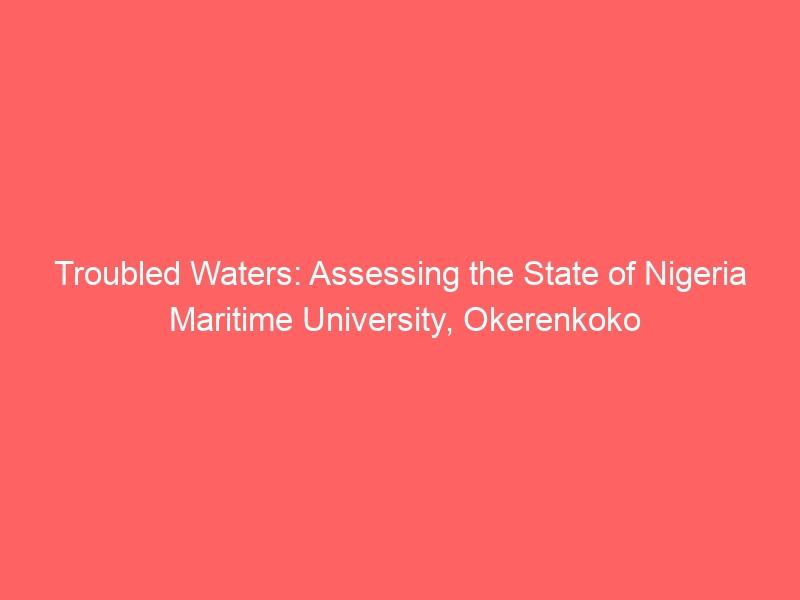By GbaramatuVoice Editorial Board
The Nigeria Maritime University, situated in Okerenkoko, Warri South West Local Government Area of Delta State, was envisioned as a beacon of hope, a bastion of maritime education excellence. However, beneath its promising exterior, a myriad of issues threatens to undermine its potential and disrupt its journey towards excellence.
Established by the Federal Ministry of Transport and anchored by the Nigerian Maritime Administration and Safety Agency (NIMASA), the university was envisioned to address the chronic shortage of skilled professionals in the maritime sector. Situated strategically on the banks of the Escravos River, a bustling route for ocean-bound vessels, its location symbolizes the nexus between academia and industry.
Yet, despite its noble mandate, the university faces significant administrative challenges. Vacancies in critical positions such as the Bursar and University Librarian have persisted for an alarming duration, with the university management allegedly sidestepping established procedures. This administrative inertia threatens to impede the institution’s ability to function effectively and fulfill its educational mission.
Moreover, the impending expiration of the Registrar’s tenure compounds concerns about leadership continuity and succession planning within the university. Without decisive action, the institution risks being adrift in a sea of uncertainty, unable to navigate the complexities of modern academia.
A recent investigation by GbaramatuVoice shed light on the plight of students and staff, who voiced grievances ranging from infrastructure neglect to inadequate amenities. Reports of sporadic water and electricity supplies, poor sanitation, and dilapidated hostel and classroom facilities paint a grim picture of campus life. Such conditions not only compromise the learning environment but also erode morale and hinder academic progress.
Central to these challenges is the alleged absenteeism and perceived administrative shortcomings of the Vice-Chancellor, Prof. Emmanuel Adigio. Students and staff have decried his limited presence on campus, with allegations that he attends only scheduled meetings before promptly departing. This purported lack of engagement exacerbates feelings of neglect and exacerbates existing frustrations.
In the face of adversity, however, there remains hope for redemption. The Nigeria Maritime University possesses immense potential to be a catalyst for change within the maritime industry, producing skilled professionals capable of navigating the complex waters of global trade and commerce. Yet, realizing this vision requires decisive action and unwavering commitment from all stakeholders.
Therefore, we call upon the Federal Ministry of Education and the Nigeria Universities Commission to launch a comprehensive investigation into the university’s operations and governance practices. Transparency and accountability must be prioritized to restore confidence in the institution and safeguard its future.
Additionally, we urge stakeholders—academics, industry leaders, and government officials—to actively engage in oversight and advocacy efforts. By demanding accountability and driving meaningful change, we can ensure the Nigeria Maritime University fulfills its mandate and secures a brighter future for all.
The time for action is now. Let us stand together in solidarity, united in our commitment to a revitalized and accountable Nigeria Maritime University.












